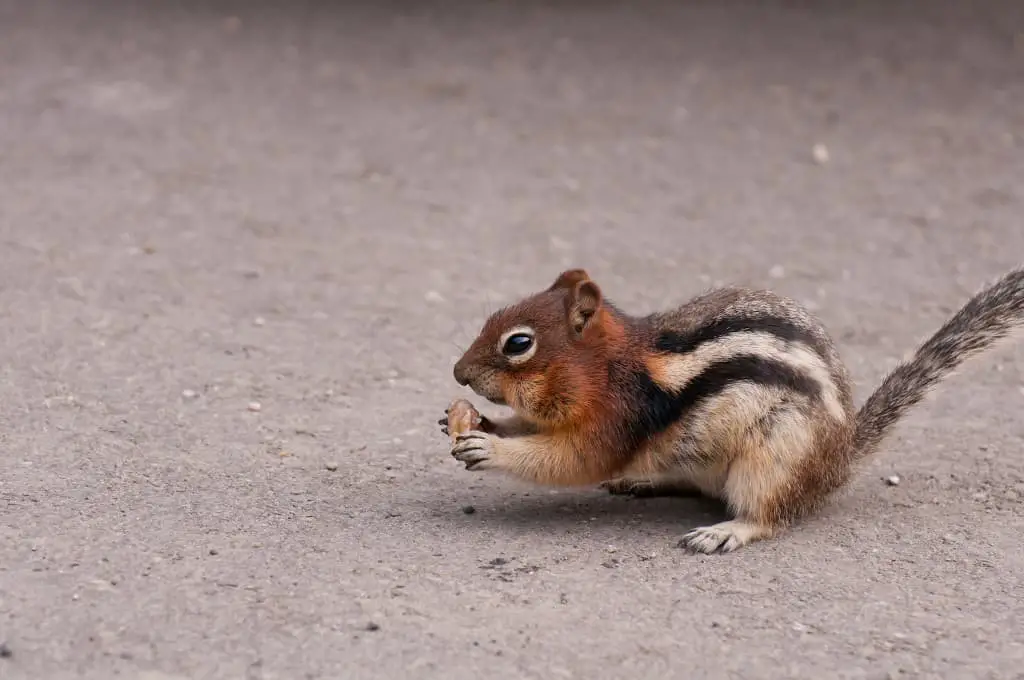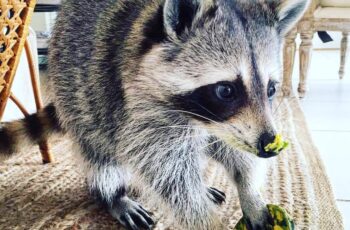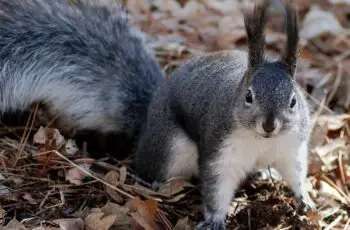Chipmunks are small rodents that inhabit many parts of the world.
They have slender bodies, usually with thin stripes running up and down their back.
Chipmunks are omnivorous in nature, meaning that they consume both plant and animal matter. Many people wonder if chipmunks eat birds – the answer to this question is more complicated than you might think!
Although it is not common, chipmunks can eat small birds, though they prefer other sources of food like seeds and nuts.
Additionally, chipmunks often choose to scavenge rather than hunt due to their timid nature.
What Are Chipmunks? Where Do They Live?
Chipmunks are small, energetic rodents that inhabit most of the world. They have slender bodies with thin stripes running up and down their backs.
Chipmunks range in size from 18-25 cm in length and come in an array of colors from light brown to dark gray. They have large eyes and ears, which help them detect predators and other threats around them.
Chipmunks live in a variety of habitats from woodlands to urban environments. They prefer warm climates but can adapt to colder temperatures if necessary. Chipmunks typically live on their own and form large communities with extensive burrows for shelter.
Chipmunks are very active animals who spend most of their time foraging for food while avoiding predators at the same time. When they do encounter live prey, they typically focus on smaller insects or invertebrates instead of larger birds.
Overall, chipmunks are interesting animals that can provide us with insight into the delicate balance between nature and our environment.
Are Chipmunks the Same As Squirrels?
Chipmunks are a type of small, striped rodent that belong to the same family as squirrels.
They have similarities in terms of appearance and behavior but are clearly distinct from one another.
Chipmunks differ from squirrels in many ways including size, diet, and habitat preferences. While both species can be found in a wide variety of habitats, chipmunks prefer dense vegetation and rocky areas while squirrels typically inhabit open woodlands.
Additionally, chipmunks’ diet consists mostly of seeds and nuts while squirrels will also eat small animals such as insects or birds.
Do Chipmunks Eat Birds?
Chipmunks are omnivorous in nature, meaning that they consume both plant and animal matter.
While it is not common, chipmunks can eat small birds.
However, they prefer other sources of food such as seeds, nuts, fruits, insects, and worms.
Chipmunks often choose to scavenge rather than hunt due to their timid nature and typically focus on smaller insects or invertebrates instead of larger birds when they do encounter live prey.
By comprehending the behavior of these creatures, we can more fully appreciate and understand the intricate web of life that exists in our environment.
Do Chipmunks Eat Dead Birds?

Chipmunks generally do not feed on dead birds, but in certain rare scenarios, they may opportunistically scavenge for them as food.
This mainly happens when other food sources become scarce and these small rodents must look to alternative sources of nutrition.
By being opportunistic scavengers, chipmunks can avoid starvation while still conserving energy during this time.
Do Chipmunks Hunt Baby Birds?
While it is unlikely that chipmunks actively hunt baby birds, they can scavenge for them when the opportunity arises.
Chipmunks tend to be timid and prefer to scavenge rather than hunt due to their smaller size.
They have evolved to favor easier-to-obtain items such as nuts, seeds, fruit, and insects instead of larger prey like baby birds or other animals.
Therefore, chipmunks typically stick to what they know best in terms of food sources – but are still opportunistic enough to take advantage of small food sources when available.
By understanding the habits of these creatures we can better appreciate the complex web of life that exists in our environment.
- Related: Are Squirrels Omnivores? Predators?
Do Chipmunks Eat Bird Eggs?

Although it is rare, chipmunks can eat bird eggs.
Chipmunks are omnivorous in nature and will feed on whatever food sources they can find. While their diet primarily consists of seeds, nuts, fruits, insects, and worms, chipmunks can scavenge for bird eggs when the opportunity presents itself.
However, since eggs offer little nutrition to chipmunks compared to other foods, they typically stick to more reliable food sources such as seeds and nuts when available.
Overall, understanding the dietary habits of these creatures helps us better appreciate the complex web of life that exists in our environment.
How To Prevent Chipmunks From Eating Your Backyard Birds?
The best way to prevent chipmunks from eating birds in your backyard is to ensure that there are plenty of other food sources available for them.
This can be done by providing a diverse range of plants and trees in the area that chipmunks inhabit, as this will make it easier for them to access the fruits, nuts, seeds, and insects they rely on.
Additionally, it may also be beneficial to install bird feeders in your garden or yard as this will draw birds away from those areas frequented by chipmunks.
Finally, always practice proper garbage disposal techniques so that discarded food does not attract scavenging chipmunks looking for an easy meal.
Conclusion
Chipmunks are omnivorous creatures that have evolved to primarily feed on seeds, nuts, fruits, and insects. While they can scavenge for bird eggs when the opportunity arises, their diet does not typically consist of these items. Additionally, chipmunks tend to be timid and avoid hunting for larger prey such as baby birds or other animals. Overall, by understanding the dietary habits of these creatures we can better appreciate the complex web of life that exists in our environment.
Frequently Asked Questions
What does a chipmunk’s diet consist of?
Chipmunks are primarily herbivorous creatures that feed mostly on seeds and nuts while squirrels will also eat small animals such as insects or birds.
What habitats do chipmunks prefer?
Chipmunks typically inhabit dense vegetation areas or rocky regions whereas squirrels usually reside in open woodlands.
How do chipmunks usually move around?
Chipmunks are agile climbers and proficient swimmers, but they prefer to move by running or hopping with their powerful hind legs.
What sounds do chipmunks make?
Chipmunks produce a variety of vocalizations including chirps, trills, squeaks, and squeals to communicate with other members of their species.
Do chipmunks hibernate?
Yes, chipmunks can enter a state of hibernation in colder climates to conserve energy and protect themselves from winter temperatures.


